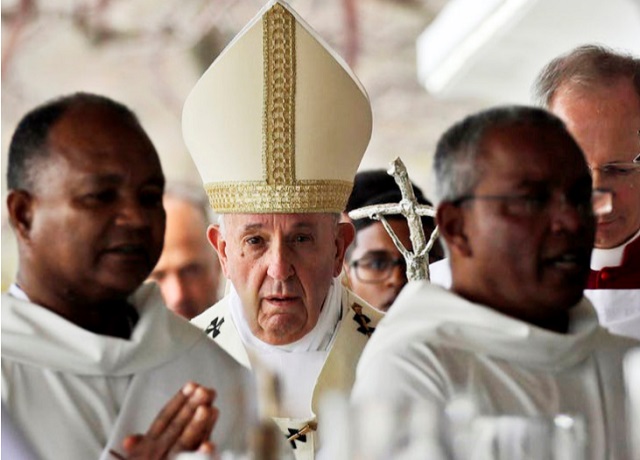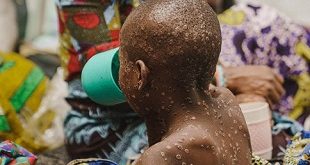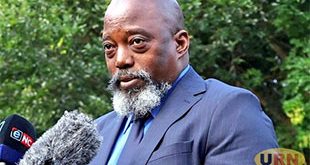
Reforms and end of colonialism
Catholic missionaries worked mostly in European languages, contributing to the continent’s linguistic and cultural colonisation.
In fact, colonisation and evangelisation occurred in lockstep. The Portuguese colonised Mozambique; the French, Madagascar; and Britain, after initial French occupation, Mauritius.
But Catholic missionaries also criticised colonialism. In 1971, for example, authorities in Mozambique, still under Portuguese rule, expelled a Catholic order for criticising the colonial regime for preventing missionaries from properly serving Mozambicans.
Elsewhere on the continent, during Africa’s transition from colonial rule to independence, from the late 1950s to 1980, many priests supported emerging ethnic and nationalist movements.
The long-term outcomes of these Catholic-backed independence movements have been mixed.
In what was to become Zimbabwe, for example, bishops supported resistance against white-led Rhodesia from the 1960s to 1980 but unwittingly brought dictator Robert Mugabe, who died recently, to power.
But in Malawi, Catholics in 1994 helped unseat the repressive president, Hastings Banda, and establish multiparty democracy.
And in many French-speaking African countries, bishops served as neutral mediators who led national conversations between autocratic rulers and civilians throughout the 1990s, often achieving democratic reforms.
Rise of Pentacostalism, Islam
To many Africans today, in the wake of independence and the church’s support for it, the Catholic Church has distanced itself from its colonial past to become an institution associated with sociopolitical reform, education and health care.
This accounts in part for its substantial growth in the three countries visited by the pope.
In Mozambique, Catholics are 30.3% of the population, the country’s largest religious group, surpassing indigenous religious practitioners and Muslims. In Mauritius, at 27.2%, Catholics take second place to Hindus but outnumber Muslims. And in Madagascar, they come in third at 21.7%.
But the church faces new challenges.
In 1970, Pentecostals represented less than 5% of all Africans. They now stand at 12%, a significant shift. In Mozambique alone, Pentecostals are the second largest Christian community.
And Islam is growing faster in Africa than Christianity. By 2050, African Muslims south of the Sahara are expected to increase from 30% to 35% of Africa’s population.
The pope’s visit, then, reflects a strategic commitment to the continent, for good reason.
The battle for souls is a struggle for statistics, enmeshed in the changing loyalties of the world’s largest Christian church.
****
Joseph Hellweg is Associate Professor of Religion, Affiliated Associate Professor of Anthropology, Florida State University
Source: the conversation
 The Independent Uganda: You get the Truth we Pay the Price
The Independent Uganda: You get the Truth we Pay the Price



